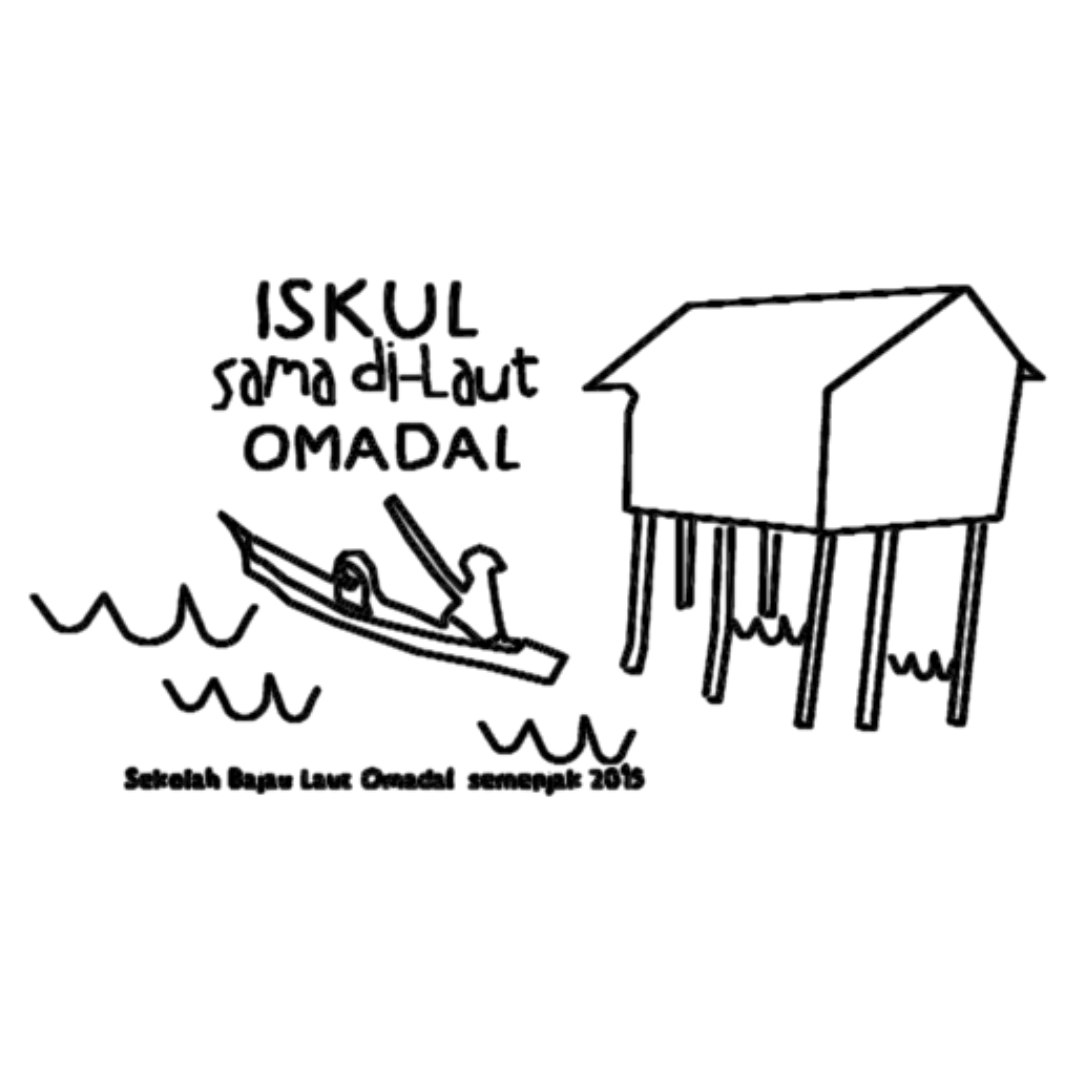The Board of Trustee (Trustees) conducted our first annual assessment visit to Iskul Sama diLaut Omadal from 14 to 30 September. Hui Ling and I flew to Semporna to meet Adzmin and Shafiyyah at our own expenses. This 17-day trip provided us better understanding of Iskul’s classes, students, Mastal Arikiks (little teachers in Bajau) and the headmistress. As insightful as the trip may be, however, it was not without challenges.
The first challenge was the security risk. Two days before our depature, news reported kidnapping of a fisherman off Semporna water. Our dive operator friends advised us against staying on the Omadal island. Interestingly, local islanders feel otherwise. Semporna town residents find it dangerous to travel to non-touristy islands i.e. Omadal but the islanders disagreed. Honestly, we were worried for many days, before and during the visit, especially on our trip to and fro Omadal. For security reasons, when in Omadal, we reported our presence to the General Operation Force’s (Pasukan Gerakan Am, PGA) base. We randomised our visits to the island and stayed a total of 10 nights. PGA advised us against roaming around when darkness sinks in. Overall, throughout the visit, we didn’t wander too far off the kampung areas. We find the island pleasant to visit especially to interact with Bajau Laut children as they gather in the evening to play. However, this security risk made it infeasible for outsiders like us to work in Omadal.
Throughout our stay, we conducted (i) seven Focus Group Discussions of threes with most of our students, (ii)13 individual interviews with our students, little teachers and headmistress,(iii) two impromptu tests for both our students and little teachers and (iv) observations as ways to collect data to understand Iskul better. Hui Ling and myself also taught a few classes which helped us to understand why our little teachers splitted the students into smaller group for better management. It was a joy to see our students eagerness in learning and wanting more classes. They were proud of their new Iskul’s t-shirt and wore it for all classes. They also displayed a persistent spirit in completing all test questions despite not knowing the answer.
Unfortunately, our in-class observation showed that our Mastal Arikiks are weak in teaching. Students were taught to memorise without understanding what they were learning. The class typically began with the little teachers writing on the board and students copied what was written. After about 45mins, the little teachers read out the words, but always explaining what it means. Futhermore, their teaching methods and class control lack creativity and fun elements.
The difference between the students’ eagerness in learning and the Mastal Arikiks’ lack of enthusiasm and teaching skills is apparent. Our little teachers had no teaching plans and repeated words taught previously. We were disappointed at this discovery. However, we understand that our Mastal Arikik are still young and they don’t have the capacity to teach like teachers. Their teaching methods possibly reflects how they learn in school (which indicates a greater problem in our national education system)! Hence, we invited a friend, Cikgu Wai Yan to guide our MA on how to prepare lessons before class.
Nonetheless, a few students can read/write/recognise A-Z, 1-50, certain words, while the rest are still learning. Together with the Mastal Arikiks and headmistress, we reshuffled the classes according to the students’ level. As our fund was running low and to reevaluate our young teachers’ teaching motivation we resolved to remove their RM50 monthly allowance for the next six months from October 2016 to March 2017. As a result, two Mastal Arikiks who recently joined us quitted. They even discouraged other children from teaching in Iskul without allowance. Thankfully, our three founding Mastal Arikik decided to continue teaching despite no allowance.
Another shocking discovery is our Mastal Arikiks’ poor school results. Their grade for Bahasa Malaysia and Mathematic are below 40 marks (fail). This shattered our initial assumption that our little teachers pass all their subjects in school.
Hence, we refocus the project into two fold. Firstly, to provide basic literacy to the stateless Bajau Laut children. Secondly, to build capacity of rural students in Malaysia. We want to build young leaders within these two communities.
Therefore the next one year, our focus will be:
- To build the capacity of our young teachers so they can teach
- To fundraise to build a structure for Iskul so that the children have a proper place to learn
- To elevate the self-esteem of out students – to empower them to become assistant MA to teach their friends, and hopefully they can become MA later.
- To hire a field coordinator to support the Mastal Arikik, students and headmistress as well as to become communicator between them and the Trustee and more
The assessment trip was intense, we had so many ideas but we can’t implement them without being there. The funding coupled with the security issue made it hard for us to work in Omadal. Nonetheless, we are resolved to continue to support Iskul and to build leaders among the stateless and local communities in Semporna!
